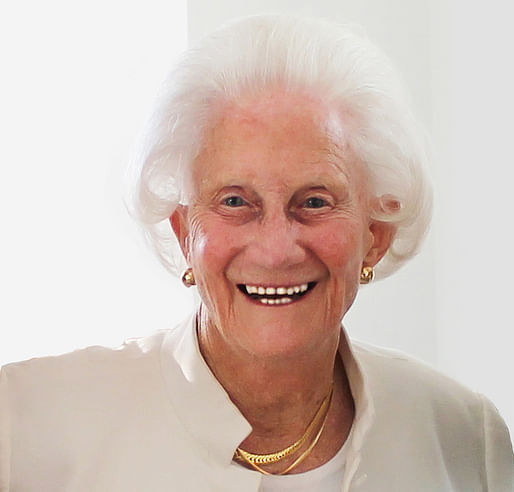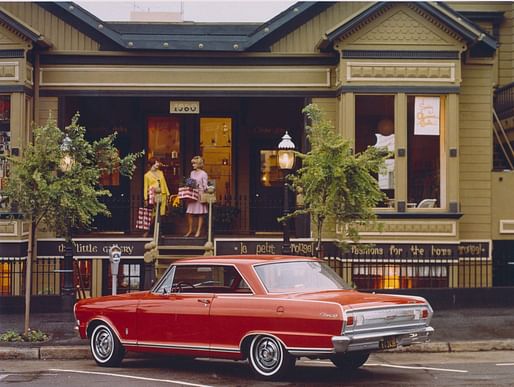

Trailblazing architect, industrial designer, and inclusion advocate Beverly Willis passed away on October 1st in Connecticut from complications related to Parkinson’s disease, the New York Times reported on Monday. She was 95.
The founder of the Beverly Willis Architecture Foundation leaves behind a legacy of wide-reaching philanthropic efforts, espousing throughout her career the position of women in the architectural and engineering trades. She pursued a prescient design agenda and building activities that served as valuable early lessons in the development of accessibility concepts, adaptive reuse, historic preservation, and sustainable design.
Willis was born in Tulsa, Oklahoma, in 1928, coming of age in a post-war America defined by “self-made people” and influenced heavily by figures such as Le Corbusier and Frank Lloyd Wright. She studied engineering at Oregon State University before transferring to the University of Hawaii to complete a Bachelor of Fine Arts degree and then returning to the mainland to set up her San Francisco-based design firm in 1958.
It wasn’t until eight years later that Willis formally obtained a license to practice in the state. From there, she went on to earn commissions like the San Francisco Ballet Building and Union Street Shops which began her on the path to becoming a national figurehead for women in the AEC industry. Willis is also credited with the invention of CARLA, the world’s first computational design software, and was one of the founding trustees of the National Building Museum before she established the BWAF in New York in 2002.
“When I looked around at the age of 75, I noticed that there were no women in the architectural and engineering history books,” Willis, who also made history as the AIA California’s first female President, said of the BWAF’s mission. “My foundation was a way of changing that. We are now in a transitional period of great cultural change, and although we have begun to make strides, there is still plenty of work to be done.”

It has since turned into an influential presence and catalyst for change in the architectural landscape through the annual BEVY Awards and other initiatives. A Lifetime Achievement Award from the AIA California followed, along with many other prestigious honors and accolades.
Willis will be remembered for having a “humanistic” design philosophy that centered on the users’ senses and experience, along with her constant championing of representation. She leaves a world in which it is increasingly easier to meet her charge of “Can you name five female architects?”
Our 2018 look at her groundbreaking first architectural commission from 1960 can be found here.
1 Comment
"An imaginative writer and thinker steeped in both classic mythology and contemporary psychology, Ms. Willis understood with this project just how much preserving details from the past — wrought-iron rails, gaslights and gingerbread cornices included — could appeal to a modern consumer.
“Stepping into the designer boutiques and intimate bistros,” she wrote in “Invisible Images,” “one senses the ambience of a time when waistcoated merchants knew customers’ names, small shops carried one-of-a-kind merchandise, and ladies with hand-painted parasols met top-hatted gentlemen for a leisurely afternoon tea.”
The Union Street Shops project, completed in 1965, is considered one of the earliest success stories in the adaptive-reuse field; the historian Clare Lorenz noted that “it foreshadowed national efforts to restore old buildings in city centers.”
Despite the acclaim this project received, Ms. Willis found herself unable to apply for a state license as an architect because she had never worked under another architect. She considered suing but turned instead to Senator Daniel K. Inouye of Hawaii, a friend from her time there, who put in a call to Gov. Pat Brown of California. Three days later, she received the documentation needed to sit for the exams. She obtained her license in 1966.
She became head of the California chapter of the American Institute of Architects in 1979."
Block this user
Are you sure you want to block this user and hide all related comments throughout the site?
Archinect
This is your first comment on Archinect. Your comment will be visible once approved.